About this guide

A member of staff or a carer can support you to read this guide. They will be able to answer any questions that you have.
About this guide
This guide is to help you if someone close to you has died.
It is different for everyone

When someone close to you dies, people can feel different things.
You might feel:
- sad
- angry
- lonely
- frightened
- guilty
- numb
There is help for you

There are lots of people who can help you when someone dies.
There are some helpful contacts at the back of this guide.
What things must be done when someone dies?

Medical certificate
A doctor must sign a medical certificate. This says when a person died and how they died. The doctor will give this certificate to the family of the person who died.
If a person dies at home, a doctor must be called to sign the certificate.

Finding out why a person has died
If someone dies suddenly, the doctor will tell the police. The police tell a coroner. The coroner has the job of finding out how people have died.
A doctor might have to check the body to find out why the person died. This is called a post mortem.

Registering the death
If you are given the medical certificate, you have to take it to the local Registrar. This is the person who keeps a list of people who are born or die in your area.
You must do this within five days of getting the medical certificate.
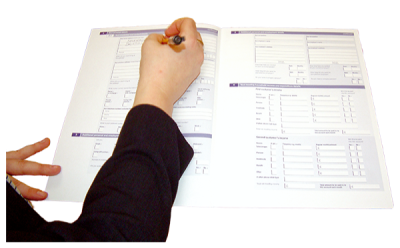
The Registrar will give you a Death Certificate. This says the date the person died and how they died.
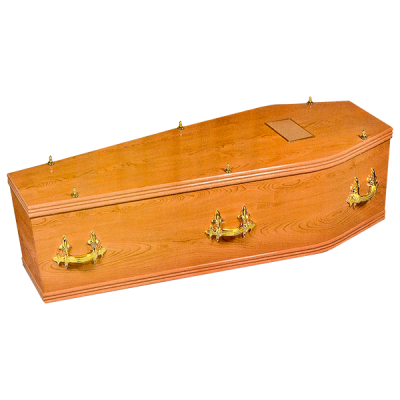
Arranging a funeral
A funeral director will help the family to plan the funeral. There will be a firm near you. You can contact them as soon as someone has died.

You will be able to plan where the funeral will be and when. You can choose a coffin, and flowers if you want to.
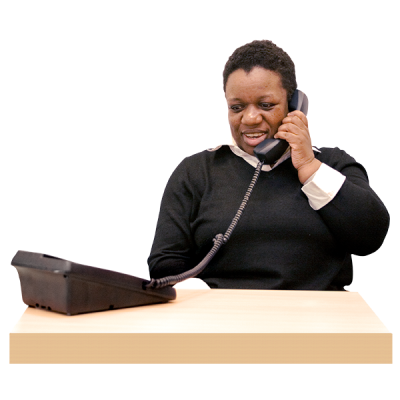
You may get some money
Sometimes people can get money from the government when someone close to them dies. This can help to pay for the funeral.
You may be able to get regular payments from a pension.
Contact your local Department for Work and Pensions (DWP) to find out more.

Telling people
You should tell the tax office (HMRC) about the death.
Some people write a Will before they die. The Will says what will happen to their money and possessions when they die. It says who will be in charge of making sure the money and possessions go to the right people.
You can ask a solicitor to help.
How do people feel when someone dies

When someone dies, people react in different ways.
It is not easy but nearly everyone faces this at some time in their life.

In the first few days
Often people feel shocked when someone close to them dies. These are some of the feelings people might have in the first few days:
- Sadness
- Panic
- Frightened
- Alone
- Numb, like they cannot feel anything.

Most people cry but some people do not cry at all.
Some people keep busy organising the funeral or sorting things out, to help them get through the difficult time.

Some people feel they cannot cope at all and need lots of help and support.
All of these feelings are normal.

After a few weeks or months
It can take a long time to feel better after someone close to you dies.
Some people feel ‘on edge’ for months. They might keep very busy, doing things like cleaning the whole house.

Often people feel guilty and wonder if they could have done more to help.
People can feel angry at the person who has died, or angry at people around them.

These feelings are all normal, but if you are worried you should speak to your doctor or someone you trust.
When will I start to feel better?

It can take a long time before you feel better.
For most people they start to think about the person who has died a bit less, and feel they can be happy in their life. This often takes one or two years.

Remember, ‘moving on’ and being happy again doesn’t mean that you have forgotten about the person who has died.
Can tablets help me feel better?

Sometimes, your doctor might give you tablets to help you when someone dies.
The tablets might help you to feel calmer and might help you sleep during the first few weeks. Most people do not use them for very long.

If you feel depressed for a long time after someone dies, you should speak to your doctor.
What can I do to help myself?

Before someone dies
If you can, and if it’s ok with them, you should try to talk to the person who is going to die.
It can be good to tell them how you feel about them.
It can be good to talk about things you might need to sort out, like money and the Will.
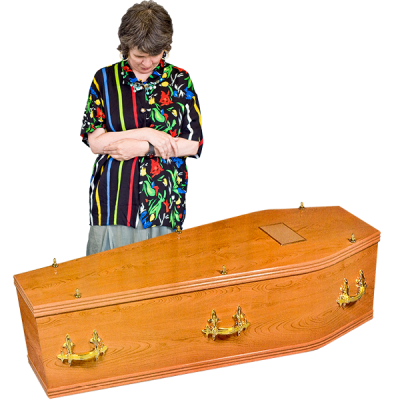
In the first few days
When someone dies, you might want to see them in the funeral home. Some people find this helps them, they want to say goodbye. Other people do not want to do this. You can decide what you do.
If you are planning a funeral, get someone to help you.
Funerals can cost a lot of money – do not feel you must spend more than you can afford.

Over the next weeks and months
It is important to look after yourself.
- Make sure you eat well and rest.
- Talk to people about how you are feeling. Talk to friends and family, or your doctor. Ask for help if you need it.
- Try to see friends and family.

- Join local groups and clubs to meet new people.
- Plan what you will do on days that are special like birthdays, anniversaries or Christmas.

- Try not to make big changes in your life, like moving house or getting a new job. Often people regret making these changes when they are feeling better.

- Don’t turn to alcohol to make you feel better.
What can your family and friends do to help?

Sometimes family and friends don’t know how to make you feel better.
They might even stop seeing you because they don’t know how to help.

Your family and friends can help. It is good if they:
- Spend time with you.
- Talk to you and listen.
- Don’t get angry or upset with you.

- Talk about the person who has died.
- Offer to help, cooking and cleaning or helping with shopping. This can be really useful in the first few days after someone dies.
- Help you to go out and about to see people and meet new people.
Where to get more help

If you would like to get more help or information, you can get in touch with these people:
Bereavement Advice Centre
Help and advice on bereavement.
Telephone 0800 634 9494
www.
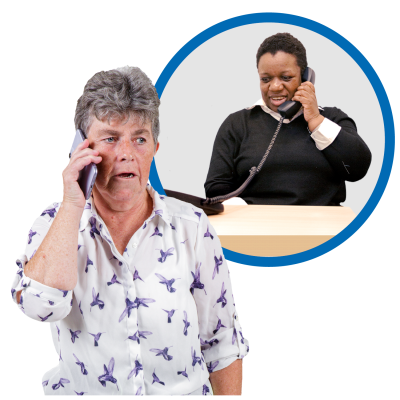
CRUSE Bereavement Support
Help and support after a bereavement for people and carers.
Telephone 0808 808 1677
www.
The NHS website
Help and information about local services and healthy living.
www.
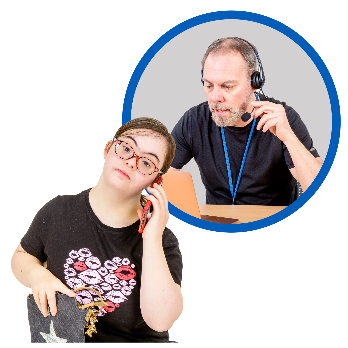
Samaritans
Support for people in a crisis.
Telephone: 116 123
Email: jo
www.
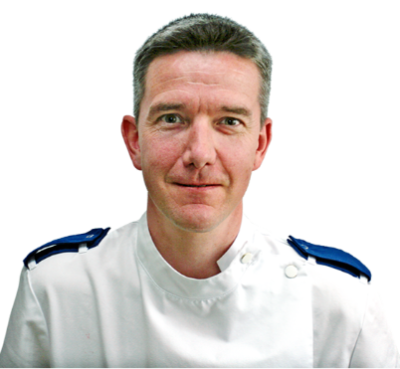
You can also get help and information from your doctor or nurse.
Acknowledgement

Easy Read version developed by:
- Skills for People, Telephone: 0191 281 8737
Skills for People is a registered charity no. 1069993 - Many thanks to service users and healthcare staff who have contributed to the development of this guide
Adapted from Bereavement - A Self Help Guide written by Lorna Cameron and Dr Lesley Maunder. www.
Published by the Patient Information Centre
2022 Copyright, Cumbria, Northumberland, Tyne and Wear NHS Foundation Trust
Ref, PIC/744/0422 April 2022 V3
Review date 2025
 Print or download as a PDF
Print or download as a PDF